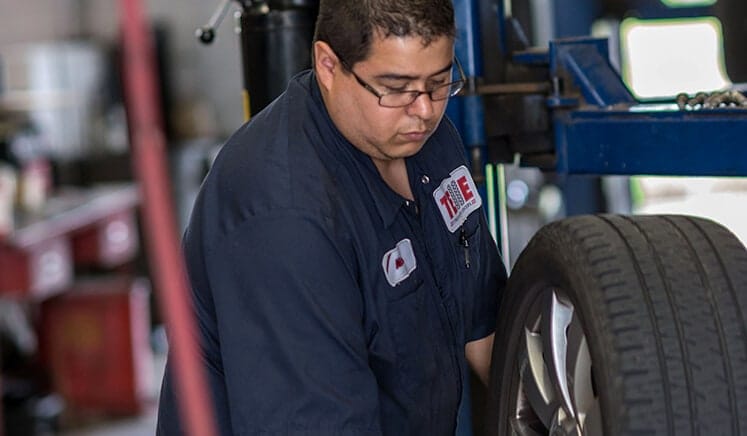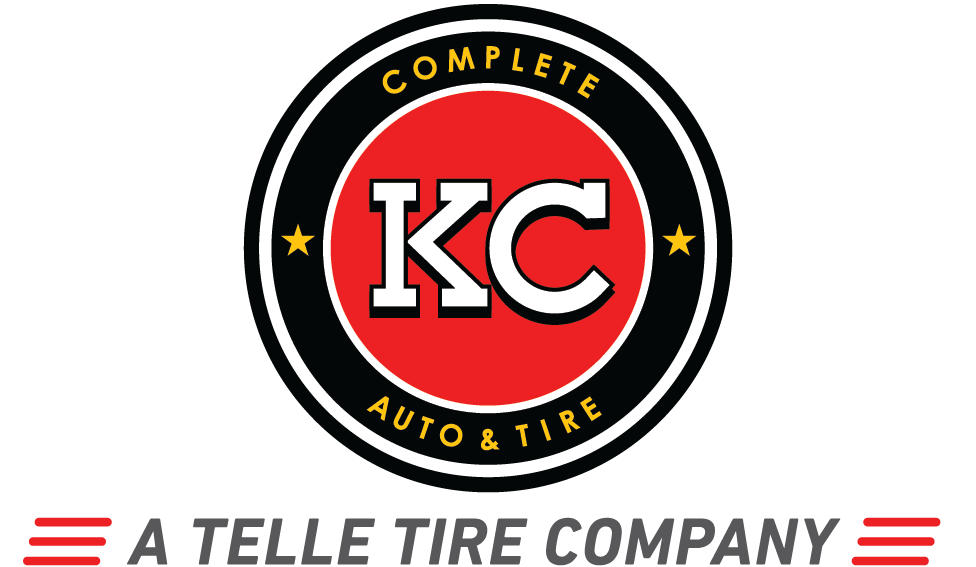What to know when you get a flat tire

You can’t predict when you’re going to get a flat tire. Sometimes it happens suddenly, such as when you drive over a nail or accident debris. Other times your tire will leak slowly over time due to tread wear and tear, meaning you won’t notice for days.
Regardless of the situation, you absolutely should not drive on a flat tire. Yes, even if your tire is supposedly equipped to drive 50 miles or so on a flat. Driving on a flat can cause irreversible damage to your tire and wheel.
When you notice a flat tire, you need to do three things: pull over, change your tire and drive to a trusted tire repair shop.
- Pull over to the side of the road
If you can, try to pull over such that the tire in question is not on the side of passing traffic. This will give you the space you need to change your tire without the risk of being hit by inattentive drivers. - Change your tire
These days, most cars come complete with the equipment necessary to change your tire: a lug wrench, jack and spare tire. If your car does not have these things—or of you don’t know how to change your tire yourself—then call a towing company or roadside assistance.Here’s a helpful video on how to change your tire if you need a refresher. - Drive to a trusted repair shop
When it comes to choosing a tire shop, it’s important to look for trustworthiness rather than proximity. Just because a shop is close to you doesn’t mean it’s the best option.At Telle Tire & Auto Centers and KC Complete Auto Service, we are some of the most trusted mechanics in the greater St. Louis, Kansas City and Jefferson City areas. For more than 82 years, our neighbors have trusted us with their tires and their cars. We offer the best warranties in the business—3 years or 30,000 miles—to protect you against the road ahead. Plus, you know you’re getting quality service since we require each of our technicians to be certified by the National Tire Industry Association.
Should I repair or replace my flat tire?
Well, it depends. The industry standard dictates that holes or punctures greater than ¼” in diameter should not be repaired. It is possible, in some cases, to repair holes smaller than ¼” with a plug, patch or both.
Unfortunately, many auto shops do not abide by the industry standard. Repairs—such as patches and plugs—on holes larger than ¼” will not last for long. Sometimes, they’ll last as long as a week or month. But then you’re right back where you started.
At Telle, we will tell you exactly what your car needs without overcharging you because we value the health of your car and the future of our relationship with you as a client.
If the damage is small, a repair might be possible, but it still needs to be done right by qualified professionals. Here’s what you need to know about flat tire repairs:
- Your flat tire repair needs to be completely airtight
This seems obvious. But, again, not all mechanics follow this rule. Often, inexperienced mechanics will make ”repairs” while your tire is still on your car. This means they are not properly inspecting the inside valves of your tire, and are not completely sealing the puncture.Telle will completely seal your tire. Every time. If it can’t be sealed, we’ll replace it. But we’ll always fix your flat tire at its source. - Use mushroom-shaped plugs, not string plugs
String plugs—or those that are shaped like a thick string—will fix your flat tire, at least for a while. Eventually, though, they will allow air through the barrier. A ”mushroom shape” allows a small, thicker part of your plug to completely seal air from the innerliner. - A patch on the innerliner might be required
This is why it’s important to take your tires off—so you can inspect the inside of the tire. If the puncture has reached the innerliner, you will need to a small patch to seal the puncture. Often, patches are used in conjunction with plugs to create an airtight seal that lasts.
The Telle Difference: Warranties that protect you against the road ahead
Telle Tire aims to be more than just another mechanic—we want to be the mechanic you trust for years to come. That’s why we offer the best warranties in the business when you buy new tires—3 years or 30,000 miles—and require each of our employees to be certified at the highest level. For four generations, we’ve been taking care of St. Louis & KC’s automotive needs. We’d love to help you, too.

